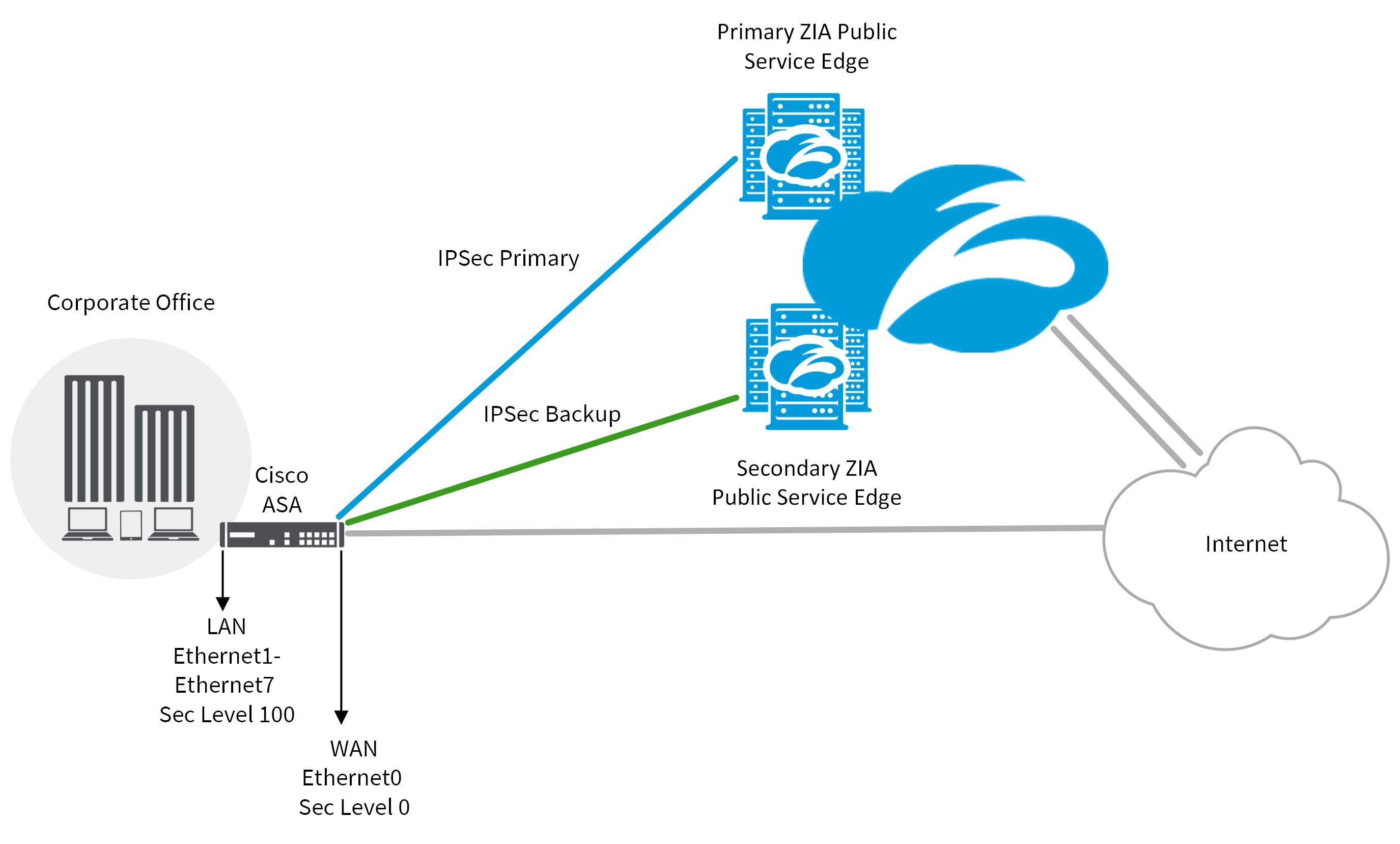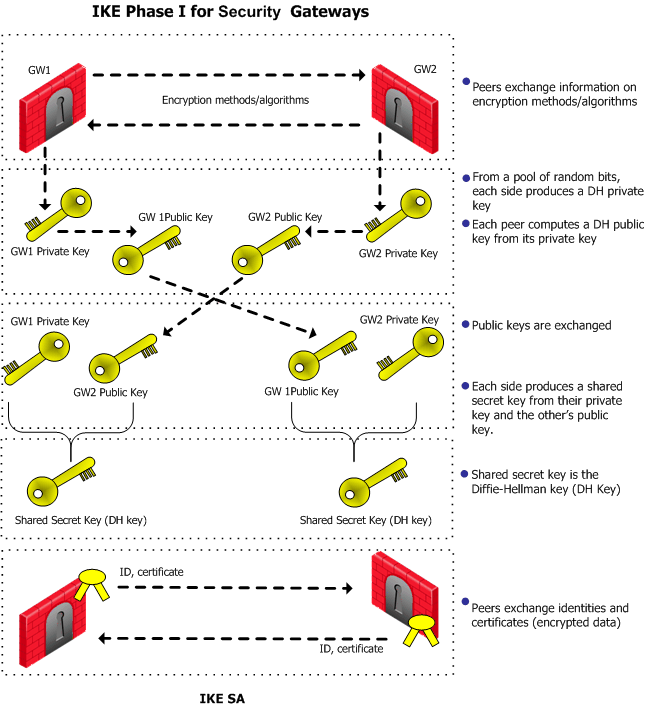Featured
Table of Contents
- – Ipsec (Internet Protocol Security)
- – How Ipsec Works, It's Components And Purpose
- – What Is Internet Protocol Security? Applicatio...
- – Ipsec Basics
- – What Is Ipsec? - How Ipsec Work And Protocols...
- – Ip Security (Ipsec)
- – What An Ipsec Vpn Is, And How It Works
- – What Is Ipsec And How Does It Work?
- – What Is Ip Security (Ipsec), Tacacs And Aaa ...
- – Define Ipsec Crypto Profiles
Ipsec (Internet Protocol Security)
IPsec (Internet Protocol Security) is a structure that assists us to protect IP traffic on the network layer. Why? since the IP protocol itself doesn't have any security includes at all. IPsec can protect our traffic with the following features:: by encrypting our information, nobody other than the sender and receiver will have the ability to read our information.

By determining a hash value, the sender and receiver will be able to examine if modifications have been made to the packet.: the sender and receiver will authenticate each other to make sure that we are actually talking with the gadget we intend to.: even if a packet is encrypted and verified, an opponent might try to record these packets and send them once again.
How Ipsec Works, It's Components And Purpose
As a framework, IPsec utilizes a variety of protocols to execute the features I described above. Here's a summary: Don't fret about all the boxes you see in the picture above, we will cover each of those. To provide you an example, for encryption we can pick if we want to utilize DES, 3DES or AES.
In this lesson I will begin with a summary and then we will take a better look at each of the elements. Prior to we can secure any IP packages, we need two IPsec peers that develop the IPsec tunnel. To establish an IPsec tunnel, we utilize a procedure called.
What Is Internet Protocol Security? Applications And Benefits
In this stage, an session is developed. This is likewise called the or tunnel. The collection of criteria that the 2 gadgets will use is called a. Here's an example of 2 routers that have actually established the IKE phase 1 tunnel: The IKE stage 1 tunnel is just utilized for.
Here's an image of our 2 routers that completed IKE stage 2: As soon as IKE stage 2 is completed, we have an IKE phase 2 tunnel (or IPsec tunnel) that we can utilize to secure our user data. This user data will be sent out through the IKE stage 2 tunnel: IKE builds the tunnels for us however it does not confirm or secure user information.
Ipsec Basics


I will explain these 2 modes in information later on in this lesson. The whole procedure of IPsec includes 5 steps:: something needs to activate the production of our tunnels. For example when you configure IPsec on a router, you utilize an access-list to tell the router what information to protect.
Everything I discuss listed below applies to IKEv1. The main function of IKE stage 1 is to establish a protected tunnel that we can utilize for IKE stage 2. We can break down phase 1 in three simple steps: The peer that has traffic that needs to be safeguarded will initiate the IKE stage 1 settlement.
What Is Ipsec? - How Ipsec Work And Protocols Used
: each peer needs to prove who he is. 2 typically used options are a pre-shared secret or digital certificates.: the DH group figures out the strength of the secret that is used in the key exchange procedure. The greater group numbers are more safe and secure but take longer to calculate.
The last action is that the 2 peers will authenticate each other using the authentication method that they concurred upon on in the settlement. When the authentication succeeds, we have actually finished IKE phase 1. The end outcome is a IKE phase 1 tunnel (aka ISAKMP tunnel) which is bidirectional.
Ip Security (Ipsec)
Above you can see that the initiator utilizes IP address 192. IKE utilizes for this. In the output above you can see an initiator, this is a distinct worth that identifies this security association.
The domain of interpretation is IPsec and this is the first proposition. In the you can find the qualities that we desire to utilize for this security association.
What An Ipsec Vpn Is, And How It Works
Because our peers concur on the security association to utilize, the initiator will start the Diffie Hellman essential exchange. In the output above you can see the payload for the key exchange and the nonce. The responder will also send his/her Diffie Hellman nonces to the initiator, our two peers can now calculate the Diffie Hellman shared key.
These two are utilized for recognition and authentication of each peer. The initiator begins. And above we have the sixth message from the responder with its recognition and authentication info. IKEv1 main mode has actually now finished and we can continue with IKE phase 2. Before we continue with phase 2, let me show you aggressive mode first.
What Is Ipsec And How Does It Work?
1) to the responder (192. 168.12. 2). You can see the change payload with the security association qualities, DH nonces and the identification (in clear text) in this single message. The responder now has whatever in requirements to produce the DH shared key and sends some nonces to the initiator so that it can also compute the DH shared secret.
Both peers have whatever they need, the last message from the initiator is a hash that is utilized for authentication. Our IKE stage 1 tunnel is now up and running and we are all set to continue with IKE stage 2. The IKE phase 2 tunnel (IPsec tunnel) will be in fact used to safeguard user information.
What Is Ip Security (Ipsec), Tacacs And Aaa ...
It secures the IP packet by determining a hash value over practically all fields in the IP header. The fields it leaves out are the ones that can be altered in transit (TTL and header checksum). Let's begin with transport mode Transport mode is basic, it just includes an AH header after the IP header.
With tunnel mode we add a brand-new IP header on top of the initial IP packet. This could be helpful when you are using private IP addresses and you need to tunnel your traffic over the Internet.
Define Ipsec Crypto Profiles
It also provides authentication however unlike AH, it's not for the whole IP package. Here's what it looks like in wireshark: Above you can see the original IP packet and that we are utilizing ESP.
The original IP header is now likewise encrypted. Here's what it looks like in wireshark: The output of the capture is above resembles what you have actually seen in transportation mode. The only difference is that this is a new IP header, you do not get to see the original IP header.
Table of Contents
- – Ipsec (Internet Protocol Security)
- – How Ipsec Works, It's Components And Purpose
- – What Is Internet Protocol Security? Applicatio...
- – Ipsec Basics
- – What Is Ipsec? - How Ipsec Work And Protocols...
- – Ip Security (Ipsec)
- – What An Ipsec Vpn Is, And How It Works
- – What Is Ipsec And How Does It Work?
- – What Is Ip Security (Ipsec), Tacacs And Aaa ...
- – Define Ipsec Crypto Profiles
Latest Posts
Why You Need A Vpn, And How To Choose The Right One
Beginner's Guide To Vpn - Everything You Need [5000+ ...
Best Vpns For Small Businesses (2023)
More
Latest Posts
Why You Need A Vpn, And How To Choose The Right One
Beginner's Guide To Vpn - Everything You Need [5000+ ...
Best Vpns For Small Businesses (2023)